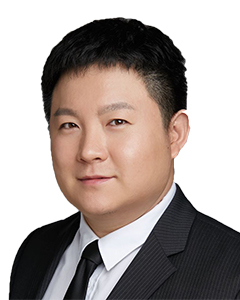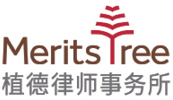For pharmaceutical enterprises, the risk of violating the Anti-Monopoly Law (AML) is undoubtedly one of the most important legal risks. According to the AML, enterprises abusing their dominant market positions, or reaching monopoly agreements, shall be ordered by enforcement authorities to stop their illegal acts, with their illegal income confiscated. Those enterprises shall also receive a maximum fine of 10% of the sales volume in the previous year.

Partner
Merits & Tree Law Offices
Meanwhile, as the pharmaceutical industry involves the national economy and people’s livelihoods, anti-monopoly investigations in the pharmaceutical industry have always been a focus of China’s AML enforcement authorities. Recently, the State Administration for Market Regulation (SAMR) issued the Anti-Monopoly Guidelines for API Field (Exposure Draft), which clearly states: “The monopoly behaviours of active pharmaceutical ingredients [API] shall be dealt with seriously according to law.” The author understands that in the future, anti-monopoly investigations, in the API and other pharmaceutical fields, will become the focus of enforcement authorities, and may face tougher penalties.
This article reviews anti-monopoly investigation cases in the pharmaceutical industry since 2015, and analyses the characteristics and trends of AML enforcement through relevant data review.
The numbers
According to information (excluding administrative monopoly cases) released by the SAMR, the National Development and Reform Commission and the State Administration for Industry and Commerce, since 2015 there have been 14 anti-monopoly investigation cases in the pharmaceutical industry, including 11 cases concluded with punishment decisions, one case of investigation suspension, and two cases of investigation termination. It can be seen that more than 78% of the cases initiated by the government are concluded with determinations of constituting monopoly behaviour, and the imposition of penalties.
From the perspective of the monopoly behaviour types, among the above 14 cases, there are eight cases of abusing dominant market position (57.1%), three of vertical monopoly agreement (21.45%), and three of horizontal monopoly agreement (21.45%).
From the perspective of the medical segmentations involved, there are nine cases in the API field (64.3%), three in the medical device field (21.4%), one in the finished drug field (7.1%), and one in the drug procurement field (7.1%).
Analysing statistics
Based on the above-mentioned statistics, in recent years in the anti-monopoly investigations conducted by AML enforcement authorities in medical fields, the risk of violating the AML in the API field is the highest, followed by the medical device field, while the finished drug field and drug procurement field are slightly lower.
The most common type of punished monopoly behaviour in the pharmaceutical industry is abusing dominant market position, however cases of monopoly agreements also account for about 42.9%. The risks of abusing dominant market position and monopoly agreements should not be underestimated for pharmaceutical enterprises.
From the perspective of behaviour types, seven of the nine API-related anti-monopoly investigation cases were for abusing dominant market position. There are two reasons why the cases mainly focus on behaviour related to this.
On one hand, the number of enterprises actually engaged in production and sales of varieties of API in China is relatively small or concentrated. In the case that only two or three pharmaceutical enterprises are actually engaged in the production and sales of a specific variety of API, the evidence that the party concerned has a dominant market position is often very sufficient and easy to collect and demonstrate.
AML enforcement authorities only need to focus on investigating the relevant abuse violation, and then punish the party concerned. On the other hand, this reflects the focus of the investigation work of AML enforcement authorities.
In practice, illegal acts of abusing dominant market position mainly include: Unreasonable price increase; refusal to supply to the general downstream enterprises through the mode of stopping supply within a short period or exclusive sales; unreasonable tie-in sale of other products; and additional unreasonable transaction conditions.
In cases of abusing dominant market position, the author finds that, given that various countries have clear and strict review and management mechanisms for obtaining qualifications in the pharmaceutical industry, and for drug approval, the relevant geographic market is generally the Chinese market.
Therefore, even if there are more powerful competitors in the international market, once the pharmaceutical enterprises occupy the leading position in the domestic market, there is a risk of being identified to be in the dominant position.
In monopoly agreement cases, the main illegal forms are as follows: Parties concerned limit the minimum resale price of the downstream dealers and divide the sales markets by signing the sales agreements; email communication; and other means.
From the perspective of punishment results, AML enforcement authorities made punishment decisions on 11 cases, the investigation was terminated for two cases, and the investigation was suspended for one case.
In addition to stopping illegal acts, the 11 cases were fined between 1% and 10% of the sales volume in the previous year. The maximum fine for a single party was RMB143.8 million (US$21.7 million, or 10% of sales volume). In addition to fines, the illegal income of the parties concerned was also confiscated in five of the 11 cases. The maximum amount of illegal income confiscated from a single party concerned was RMB108.9 million.
Up until now, the case with the heaviest punishment is the monopoly case of calcium gluconate API for injection. In this case, the three operators were fined 10%, 9% and 7% of the sales volume in the previous year, respectively, and their illegal income was confiscated, a total amount of RMB325.5 million.
In this case, as two operators and their employees obstructed the investigation (seizing evidence material, and hiding and transferring relevant evidence material in spite of obstructing law enforcement officers), the AML enforcement authority imposed additional fines on both (RMB1 million each) and 14 related natural persons (RMB20,000-100,000), with a total amount of RMB2.53 million.
The author thinks that in future anti-monopoly investigations in the pharmaceutical industry, especially in the API field, will still be a focus of law enforcement authorities. It is suggested that relevant operators should control relevant risks from the source, through active self-inspection and internal compliance, so as to avoid potential high penalties.
Ye Han is a partner at Merits & Tree Law Offices

Merits & Tree Law Offices
5/F, Raffles City Beijing Office Tower
No.1 Dongzhimen South Street
Dongcheng District, Beijing 100007, China
Tel: +86 21 52533501
E-mail:






















